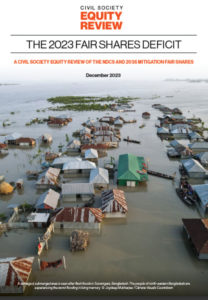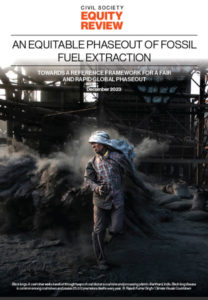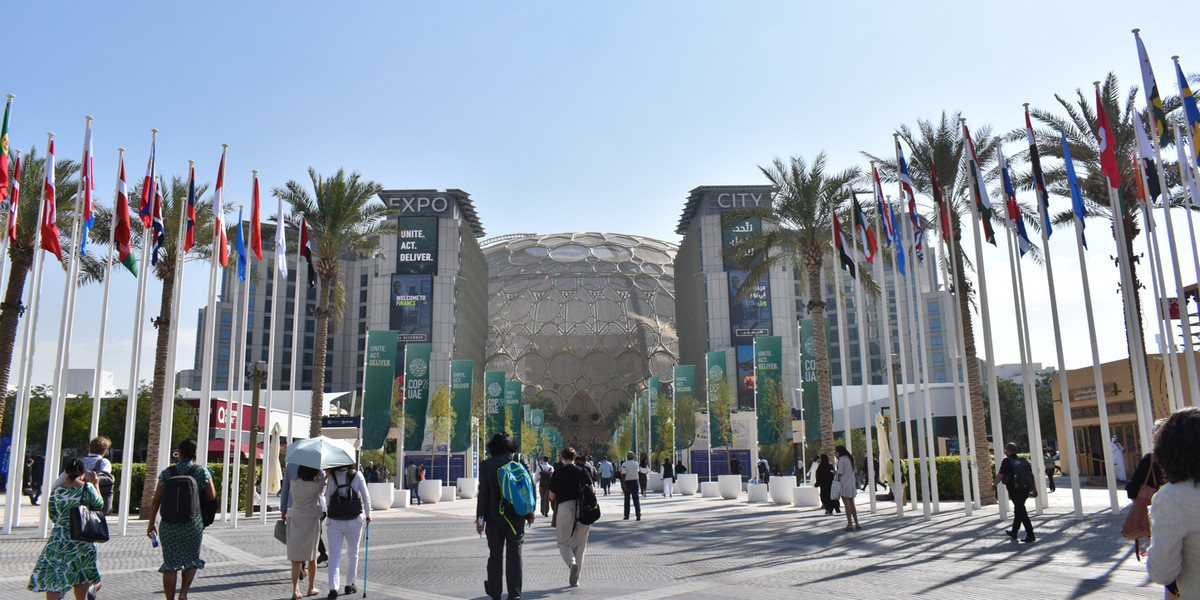Civil Society Equity Review 2023 reports, December 2023
Two new Civil Society Equity Review reports, endorsed by over 200 civil society organisations and social movements, including CIDSE, have been released at COP28 in Dubai. They build on previous years’ elaborations of what fair shares means in terms of emission reductions and fossil fuel phase out, as well as adaptation and loss and damage.
The 2023 Fair Shares Deficit – A Civil Society Equity Review of the NDCs and 2035 Mitigation Fair Shares December 2023

This publication presents a science- and equity-based analysis of a selected number of Nationally Determined Contributions (NDCs). It scrutinizes the current ambitions articulated in updated NDCs and compares them with the fair share of each country’s effort needed to limit global warming to 1.5°C. The report finds that, despite increased ambition in several NDCs, collective ambition still falls significantly short of what is required to steer the world on a path to limit temperature rise to 1.5°C. Notably, no developed or affluent countries are presently meeting their fair share NDCs.
It emphasizes the urgent need for increased ambition, both domestically and through international support, in achieving 2030 and setting 2035 targets, in anticipation of new NDCs being developed over the next year. In a call to action, the report demands that countries deliver on fair share NDCs, both updated NDCs for 2030 and the new NDCs for 2035, reflecting:
- Fair share mitigation targets.
- International support for countries surpassing domestic potential.
- Commitments to a fair, full, fast, and equitable fossil fuel phaseout.
- Commitments to a just transition.
- Rejection of false solutions or dangerous distractions that endanger communities.
An Equitable Phase Out of Fossil Fuel Extraction- Towards a reference framework for a fair and rapid global phaseout

This report follows on from the 2021 report on a Fair Shares Phase Out by further developing a framework of how a fossil fuel extraction phaseout can be done as equitably as possible. It proposes science- and equity-based dates by which different countries should end coal, oil and gas extraction to limit warming to 1.5°C and argues that substantial amounts of international support are needed to make this possible in poorer countries.
Key findings include:
- To have a decent chance of holding to the 1.5 °C limit, fossil fuel extraction must begin to decline immediately, phase down rapidly in the coming decades, and cease worldwide by 2050.”
- To have a decent chance of holding to the 1.5 °C limit, fossil fuel extraction must begin to decline immediately, phase down rapidly in the coming decades, and cease worldwide by 2050.”
- “There is no room for new oil and gas fields or coal mines to be opened anywhere in the world” and “All investment in the further build-out of fossil-fuel infrastructure must stop immediately.”
- To leave enough carbon budget for more fossil fuel-dependent economies to transition, wealthy nations that are less dependent on fossil fuel extraction such as “the United States, Norway, Australia, and the UK, must end fossil fuel extraction by the very early 2030s.”
Cover photo credit: CIDSE

